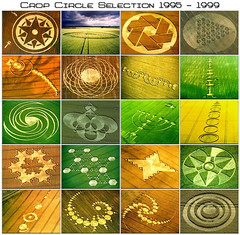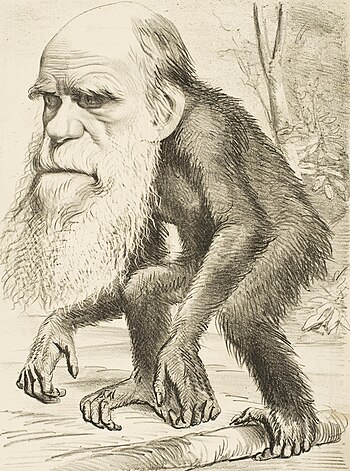 |
| (Photo credit: Wikipedia) |
Labels
Chinese culture
(16)
art
(18)
book reviews
(34)
child abuse
(10)
culture comparison
(10)
ethics
(11)
go game
(2)
history
(19)
life
(76)
love
(12)
movie reviews
(20)
my aphorisms
(97)
philosophy/reason
(13)
quotes
(42)
random thoughts
(146)
religion
(17)
suicide
(3)
Showing posts with label science. Show all posts
Showing posts with label science. Show all posts
October 17, 2015
Science And Industry - Problems Or Solution?
Labels:
civilization,
humans,
industry,
life,
my aphorisms,
pollution,
science,
weapon
January 29, 2015
Scientific Theory, Evolution (Quote)
| (Photo credit: Wikipedia) |
... evolution is not only a theory, it's also a fact. The key to understanding evolution is to recognize how it can be both:
As a fact: Evolution is simply genetic changes occurring through time in a group of individuals (a population, a species, and so on). Scientists know that these changes occur. They can see the changes, measure them; in many instances, figure out when they happened.
As a theory: Evolutionary theory seeks to explain what's responsible for the evolutionary process - in other words, what causes these changes. What scientists know today is that natural selection and genetic drift are two key forces driving these changes."
--- Evolution For Dummies, page 335-336, by Greg Krukonis, PhD, Tracy Barr,
Labels:
quotes,
science,
scientific theory
January 25, 2015
Scientific Theories And Religious Theories - Are They Same Thing?
 |
| (Photo credit: Wikipedia) |
Labels:
evolution,
random thoughts,
religion,
science,
theory
June 9, 2014
Creativity vs. Curiosity
| English: The School of Athens (detail). Fresco, Stanza della Segnatura, Palazzi Pontifici, Vatican. (Photo credit: Wikipedia) |
For very long time I've been pondering why art could not be enough for me, the answer became quite clear recently: even though I have some art talent, profoundly speaking, I am more a person with curious nature, which cannot be satisfied by art. This makes working as a professional artist a profound contradiction to my nature. No wonder I struggled!
Labels:
art,
creativity,
curiosity,
human nature,
random thoughts,
science
When Were Pyramids Built And What Do They Mean To Us?
| Pyramids (Photo credit: Mathew Knott) |
The documentary would "force" us to ask questions about what we were told by history textbooks, even to question evolution. Think about it, if the time of pyramids were built can be dated several thousands years earlier, or even tens of thousands earlier (than what we currently believe), and during which mankind (or were they really mankind?) already possessed high technique, history must be rewritten, and we might even have to rethink about this all evolution theory, which constructed by genius Darwin, and "proven" by all the archaeological evidence and biological study. Wow!
And don't forget, there was always Atlantis!
Another video:
https://www.youtube.com/watch?v=CNwtk5SONSk
Labels:
egyptology,
history,
pyramids,
science
March 29, 2014
Judgement, Who Is To Blame?
| English: "A Venerable Orang-outang", a caricature of Charles Darwin as an ape published in The Hornet, a satirical magazine. (Photo credit: Wikipedia) |
February 28, 2014
Superstition, Science, Chinese Medicine, etc.
| Old Chinese medical chart on acupuncture meridians (Photo credit: Wikipedia) |
Of course, much of Chinese medicine indeed is superstition. However, modern medicine is also not 100% "scientific". Many modern medicine treatments are not suitable for humans, but they are still in practice nonetheless because of our blind belief in science.
I don't think superstition belongs to a specific knowledge, tradition or custom. Nor do I think it's a privilege of religion. I think it is a human attitude exhibits in all intellectual fields. I think superstition in a sense can be understood as a blind belief in our imagined super power, or "absolute", derived from our despair over human condition. So as long as human race exists, superstition will always play its rule.
Labels:
chinese medicine,
random thoughts,
science,
superstition
July 30, 2013
"Truth" Or "Goodness" - The Difference Between Science And Religion
| Issues in Science and Religion (Photo credit: Wikipedia) |
Things I've doubted the most were science and religion* (or faith). When I was young I was a science "believer", but later I found the science had its limit, and realized that blindly believing science was not much different from believing "God". So, is it reasonable to say that there is not much difference between science and faith? My answer is still no. First of all, "blindly believing" as an attitude itself is a religious attitude, so blindly believing in science has nothing to do with science, rather, it's a religious thing; secondly, science and religion are essentially different because such reason: one is derived from an objective thinking style - to know, or to understand how the world (universe) works; another is derived from subjective thinking style: to wish, to hope, so that humans would be in a better condition, either during or after our lifetime (if there is a afterlife). Science respect facts ("fact", or "truth" here mean anything that can be verified by our sensory organs), regardless they are good ("good" means "favorable") or bad; faith focuses on humans needs, regardless what they believe are true or false.
From this point of view, we'd better not ask truth in religion, nor, seek morality or emotional comfort in science, though these two fields do cross each other at some points. Take the human origin as an example. Both science and religion have their interpretations on this subject: science says human evolved from lower life forms, religion says humans were created by God. People from different sides always demand each other for proofs. I would say, please don't ask science to provide evidences for evolution, because if there were no evidences, there would be no such idea; also please don't ask believers to provide evidences for God, because the beauty of faith is "blind". To say evolution is completely an objective view, not only because it was based on evidence, which means no one would just invent such idea by imagination, also because no human being would be "spiritually" or "emotionally" benefited by knowing we evolved from lower life forms. On the other hand, to say faith is subjective, not only because we got this idea out of our imagination, but also the idea makes us feel good, so called "wishful thinking". Imagine, if the story of Adam and Eve was true, would we not feel much better by knowing we are protected by God, and a guaranteed life after death? So, from this view, science and faith, which one would be "truer" should not be a dispute, and which one would make us feeling better but may not be true is also obvious.
Science doesn't always do "good" to human, because it does not mean to - it is out of our curiosity, an instinct that is like our sex drive, or our appetite for foods. To simply put, we just need to know, regardless of the outcome; faith is not always truthful because truth is not its concern, rather, it was created for consoling our desperate living situation. The reason that science and religion fought so violently for centuries, by my opinion, is because most people confused by the essential difference of these two fields, so they ask science for "good", religion for "truth", so when people found that science can do "bad", they think we should not at all believe whatever science says, and when they found faith is not "true", they would think we should be completely cynical, not to have faith at all. People forgot that these two fields derived from different side of our brains, serve for different purposes, and they have their respective necessities for human existence. Unfortunately, I found many people, probably majority, due to many reasons - possibly both natural (biological) and cultural (educational) reasons, only possess one type of thinking style, either subjective, or objective. Only in minds of some, maybe minority of population, these two thinking styles can coexist peacefully.
By saying "these two thinking styles coexist peacefully", I did not mean they (science and religion) should negotiate with each other, thus lose their own attributes, rather, I mean whoever possess these two different thinking styles know how to use them for different purposes, such as, when concerning about "truth", or facts, they go to science; when talking about value of our life, struggle in despair, fighting with injustice, pursuing happiness, they would hold faith without hesitation.
So, science and faith, rather than letting them fighting with each other, we probably should let them be "friends".
Hope I don't sound so confused after all. :-)
-----------------------------
*In this article, "science" means scientific spirit, or an objective attitude towards world, doesn't include all contents under the full definition of "science", such as scientific knowledge, discoveries and technology, etc.; "religion" here means faith, or spiritual attitude towards world, doesn't include religion institutions and doctrines.
Labels:
confusion,
evolution,
philosophy/reason,
random thoughts,
religion,
science
May 13, 2011
Crop Circles - Art of mystery
 Image by frankdasilva via FlickrLong time ago I watched TV news about crop circle hoax. Since then I never bothered again with this "phenomenon". I do not remember details of this news but roughly recall two men were busy working in the field under moonlight. Just recently I "accidentally" watched some videos about this subject from youtube. This time, I was absolutely stunned by the beauty of these amazing "formations".
Image by frankdasilva via FlickrLong time ago I watched TV news about crop circle hoax. Since then I never bothered again with this "phenomenon". I do not remember details of this news but roughly recall two men were busy working in the field under moonlight. Just recently I "accidentally" watched some videos about this subject from youtube. This time, I was absolutely stunned by the beauty of these amazing "formations".
By my spontaneous nature I immediately dove into some mysterious causes of these beautiful "creatures". One of documentaries from youtube was especially fascinating - it tells that one of crop circles was obviously responding to the (binary?) message that NASA sent to out space over 20 years ago (Crop Circles Decoded?). Beside such kind of amazing ideas, the perfect geometries, the precise design and the allegedly short time of their appearance, really overwhelm me. And I cannot help to wonder, how could people on this earth stay so calm?
It proves it is not so hard to stay calm. After I did some "researches", my attitude started leaning to another side: they are all man-made. I cannot say I am 100% convinced, but most likely the chance of being otherwise is slim.
There are also many "scientific" facts about these formations have been claimed by many "experts", such as energy changed, or "the composition of soil was completely changed"*, etc. I am not a scientist so I cannot disprove those claims.
One thing I am quite certain about is, these formations are not designed by people who are solely "artistic", nor by some simple/playful motive, but with extremely good artistic taste and high intelligence, because all these formations show incredible design sense, and all of them (for what I saw on internet) made with incredibly geometrical precision. Personally I don't not believe they were made by random amateurs. But how did this technique and unique design talent spread over the world, is simply a mystery to me.
It was said the creators of crop circles have never claimed authorship because they want to "sustain the mystery"*. Based on the article "Crop Circle Conundrum"*, one of experts said:
"In our culture, art is all to do with artists: it’s about whodunit, not about what art does. With the circles, it’s about the effect they have on people." This certainly makes a good point but I am not convinced that this is the reason they stay in hidden. But if it is, I am sure they are having great fun.
Labels:
aliens,
crop circles,
life,
mystery,
science
January 2, 2010
Is psychology a science?
 Image via Wikipedia
Image via Wikipedia
Here is an article questioning psychology's scientific value.
Is psychology a science?
It proves the difficulty on studying human being, also it supports my doubt on some psychological ideas. However, I believe scientists (psychologists) would not be discouraged by this difficulty. They will carry on. Of course.
Labels:
psychology,
random thoughts,
science
June 16, 2009
Know and needs to know
This passage of GRE reading practice enlightened my day. I have same thought about knowledge of mankind, but never put into such lucid description:
For me (anonymous author), scientific knowledge is divided into mathematical sciences, natural sciences or sciences dealing with the natural world (physical and biological sciences), and sciences dealing with mankind (psychology, sociology, all the sciences of cultureal achievements, every kind of historical knowledge). Apart from these sciences is philosophy, about which we will talk shortly. In the first place, all this is pure or theoretical knowledge, sought only for the purpose of understanding, in order to fulfill the need to understand that is intrinsic and consubstantial to man. What distinguishes man from animal is that he knows and needs to know. If man did not know that the world existed, and that the world was of a certain kind, that he was in the world and that he himself was of a certain kind, he wouldn't be man. The technical aspects of applications of knowledge are equally necessary for man and are of the greatest importance, because they also contribute to defining him as man and permit him to pursue a life increasingly more truly human.
But even while enjoying the results of technical progress, he must defend the primacy and autonomy of pure knowledge. Knowledge sought directly from its practical applications will have immediate and foreseeable success, but not the kind of important result whose revolutionary scope is in large part unforeseen, except by the imagination of the Utopians. Let me recall a well-known example. If the Greek mathematicians had not applied themselves to the investigation of conic sections, zealously and without the least suspicion that it might someday be useful, it would not have been possible centruries later to navigate far from shore. The first men to study the nature of electricity could not imagine that their experiements, carried on because of mere intellectural technology, would eventually lead to modern electrical technology, without which we can scarcely conceive of contemporary life. Pure knowledge is valuable for its own sake, because of the human spirit cannot resign itself to ignorance. But, in addition, it is the foundation for practical results that would not have been reached if this knowledge had not been sought disinterestedly.
For me (anonymous author), scientific knowledge is divided into mathematical sciences, natural sciences or sciences dealing with the natural world (physical and biological sciences), and sciences dealing with mankind (psychology, sociology, all the sciences of cultureal achievements, every kind of historical knowledge). Apart from these sciences is philosophy, about which we will talk shortly. In the first place, all this is pure or theoretical knowledge, sought only for the purpose of understanding, in order to fulfill the need to understand that is intrinsic and consubstantial to man. What distinguishes man from animal is that he knows and needs to know. If man did not know that the world existed, and that the world was of a certain kind, that he was in the world and that he himself was of a certain kind, he wouldn't be man. The technical aspects of applications of knowledge are equally necessary for man and are of the greatest importance, because they also contribute to defining him as man and permit him to pursue a life increasingly more truly human.
But even while enjoying the results of technical progress, he must defend the primacy and autonomy of pure knowledge. Knowledge sought directly from its practical applications will have immediate and foreseeable success, but not the kind of important result whose revolutionary scope is in large part unforeseen, except by the imagination of the Utopians. Let me recall a well-known example. If the Greek mathematicians had not applied themselves to the investigation of conic sections, zealously and without the least suspicion that it might someday be useful, it would not have been possible centruries later to navigate far from shore. The first men to study the nature of electricity could not imagine that their experiements, carried on because of mere intellectural technology, would eventually lead to modern electrical technology, without which we can scarcely conceive of contemporary life. Pure knowledge is valuable for its own sake, because of the human spirit cannot resign itself to ignorance. But, in addition, it is the foundation for practical results that would not have been reached if this knowledge had not been sought disinterestedly.
Subscribe to:
Posts (Atom)












![Reblog this post [with Zemanta]](http://img.zemanta.com/reblog_e.png?x-id=e9442ed5-0f84-447a-a58f-d444c2ab9a62)